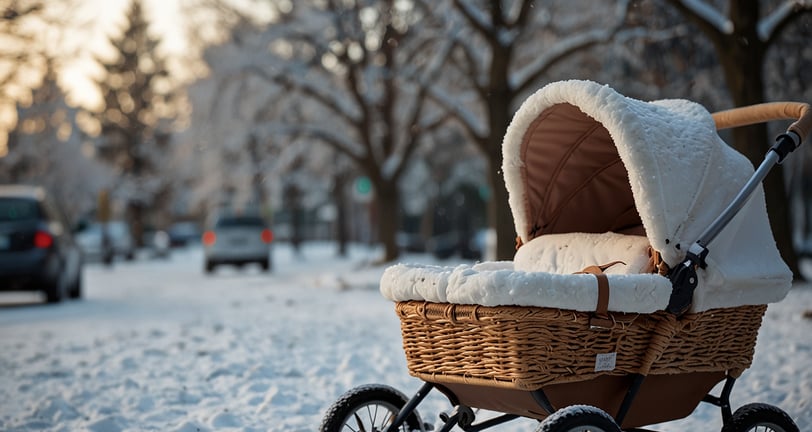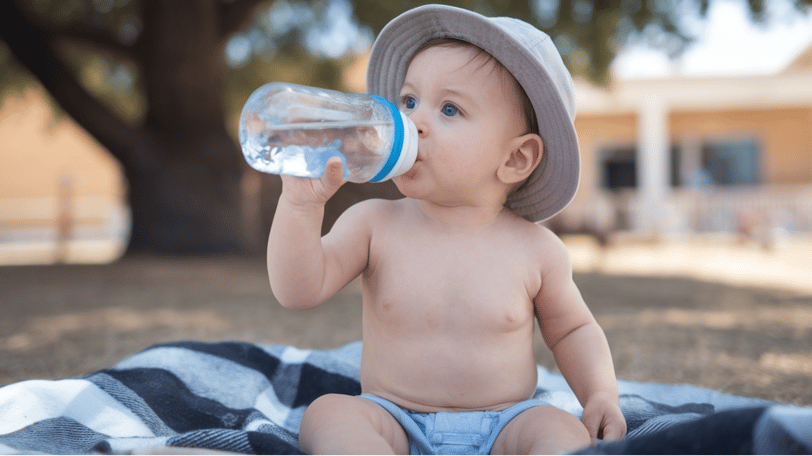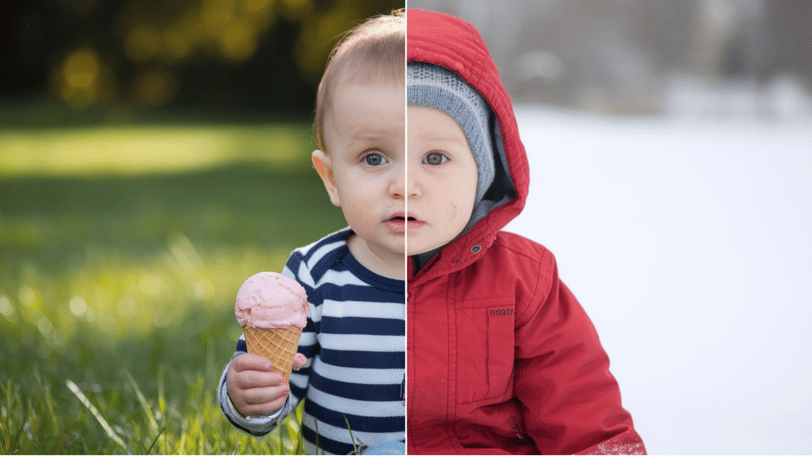Newborn in Summer vs. Winter
Wondering how to care for your newborn in summer vs. winter? Learn the key differences, seasonal challenges, and essential tips to keep your baby healthy and comfortable year-round.


Bringing a newborn into the world is such an incredible experience. But I’ve learned that the time of year you welcome your little one can make a big difference in how you prepare and care for them. Whether your baby arrives during the sunny, warm days of summer or the chilly, cozy nights of winter, each season brings its own set of challenges—and some sweet opportunities too. In this guide, I’ll walk you through the key differences in caring for a newborn in summer versus winter, along with some helpful tips I’ve picked up (and wish I knew sooner!) for both situations.
Temperature Considerations
One of the most noticeable differences between summer and winter newborn care is temperature management. Babies are sensitive to temperature extremes, so ensuring their comfort is essential.
Summer Newborns:
Overheating Risks: Hot weather can increase the risk of overheating, which may lead to dehydration or heat rash. Dress your baby in lightweight, breathable clothing made of cotton to keep them cool.
Room Temperature: Maintain an indoor temperature between 68°F and 72°F by using fans or air conditioning. Avoid placing the baby directly in front of cooling devices to prevent cold drafts.
Hydration: If you’re breastfeeding, ensure your baby is feeding often to stay hydrated. Formula-fed babies may need extra feeds during heatwaves.
Winter Newborns:
Keeping Warm: Babies lose heat quickly, so layering is key. Opt for soft, warm fabrics like fleece or wool and use a hat to prevent heat loss through the head.
Room Temperature: Aim to keep the nursery between 68°F and 72°F using a heater if needed. Use a thermostat to monitor the temperature and avoid overheating the room.
Outdoor Protection: When heading outside, bundle your baby in a snowsuit or warm blanket and ensure their face is protected from cold winds.
Dressing Your Newborn
Summer:
Dress your baby in light onesies or rompers. Keep their feet uncovered indoors to avoid overheating.
For outings, include a wide-brimmed hat to shield them from the sun and use lightweight muslin blankets for added comfort.
Winter:
Layering is crucial. Start with a cotton onesie as a base layer and add sweaters or jackets as needed.
Use mittens, socks, and a hat to keep extremities warm, especially when going outdoors.
Avoid bulky coats when using a car seat for safety reasons. Instead, use car seat covers designed for winter.
Skincare Differences
A newborn’s skin is delicate and requires special care, which can vary depending on the season.
Summer Newborns:
Sun Protection: Babies under six months should avoid direct sun exposure. Use a stroller with a sunshade or sit in shaded areas when outdoors.
Heat Rash: Keep your baby’s skin cool and dry to prevent prickly heat. If rashes appear, clean the area with cool water and pat it dry.
Moisturizing: Even in summer, your baby’s skin may need hydration. Use a gentle, fragrance-free moisturizer if their skin appears dry.
Winter Newborns:
Dry Skin: Cold air and indoor heating can dry out your baby’s skin. Apply a gentle, fragrance-free lotion regularly.
Chapped Lips and Cheeks: Protect exposed skin with a baby-safe balm to prevent chapping caused by wind or cold air.
Bathing: Limit baths to a few times a week and use lukewarm water to avoid stripping natural oils from their skin.


Feeding Patterns
Feeding your newborn may require slight adjustments depending on the season.
Summer:
Babies may feed more frequently in hot weather due to increased thirst. Offer feeds on demand to ensure hydration.
For formula-fed babies, prepare smaller, more frequent bottles to keep them comfortable.
Winter:
Feeding routines typically remain consistent, but it’s important to ensure your baby is warm during feedings. Use a cozy blanket or nursing cover to keep them comfortable.
If breastfeeding, stay hydrated yourself, as cold weather can sometimes lead to dehydration for nursing moms.
Sleep Adjustments
Sleep is critical for newborns, and seasonal differences can influence their sleep environment.
Summer:
Keep the nursery cool by using blackout curtains to block out sunlight and reduce room heat.
Use a lightweight sleep sack or swaddle to prevent overheating while ensuring your baby feels secure.
Winter:
Opt for warmer sleep sacks or swaddles made of fleece or thermal materials.
Avoid loose blankets in the crib, as they can pose a suffocation risk. Instead, rely on wearable blankets for warmth.
Health Considerations
Newborns have developing immune systems, so keeping them healthy is a top priority in any season.
Summer Newborns:
Bug Bites: Use baby-safe mosquito nets or covers when outdoors. Avoid insect repellents for newborns.
Overheating: Be vigilant for signs of overheating, such as flushed skin or fussiness, and cool your baby down promptly.
Winter Newborns:
Colds and Flu: Limit exposure to crowded places and ensure anyone handling your baby washes their hands first.
Hypothermia: Check your baby’s extremities for signs of coldness and adjust their clothing accordingly.


Outdoor Activities
Getting fresh air is beneficial for babies, but the approach differs by season.
Summer:
Plan outdoor time during cooler parts of the day, such as early morning or late afternoon.
Use a stroller fan or cooling mat for added comfort during outings.
Winter:
Limit outdoor time on particularly cold or windy days. Keep trips short to prevent your baby from getting chilled.
Use a weather shield on your stroller to block cold winds and snow.
Pros and Cons of Each Season
Summer Newborns:
Pros: Easier access to vitamin D from sunlight, lighter clothing makes diaper changes quicker, and longer daylight hours can lift your mood.
Cons: Higher risk of overheating, sunburn, and bug bites.
Winter Newborns:
Pros: Snuggling under warm blankets feels cozy, fewer bugs to worry about, and holiday celebrations create a festive atmosphere.
Cons: Dry air can irritate skin, increased exposure to cold and flu germs, and dressing in layers can be time-consuming.
Tips for Both Seasons
Regular Check-ins: Frequently touch your baby’s neck or back to ensure they’re neither too hot nor too cold.
Keep Essentials Ready: Stock up on seasonal items like sunscreen and mosquito nets for summer or warm blankets and humidifiers for winter.
Follow Your Baby’s Cues: Babies communicate their needs through fussiness, body language, or changes in feeding and sleeping patterns. Pay close attention and adjust accordingly.
Caring for a newborn in summer versus winter definitely comes with its own set of challenges, but I’ve found that with a little preparation, you can keep your baby comfortable and happy all year long. By understanding the seasonal differences and adjusting your routines, you’ll feel more confident handling everything from managing temperatures to enjoying time outdoors. At the end of the day, what matters most is filling your newborn’s world with love, attention, and plenty of cuddles—no matter what season you’re in.
